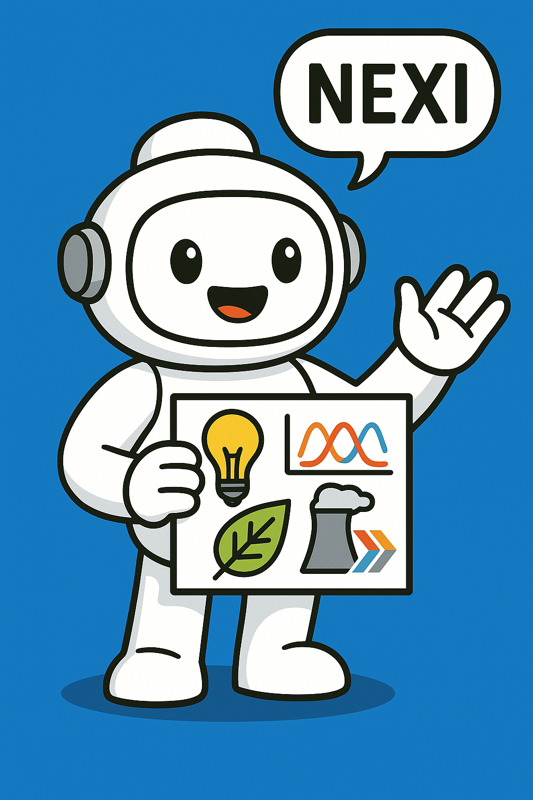Nexi - Revolutionizing Energy Scenario Planning with AI-Powered Chatbots

What?
Master Thesis or Semester Project
Where?
IPESE Lab, EPFL Valais Campus (Sion), with possibilities for partial remote work. High-frequency exchanges within a dynamic research community.
When?
Flexible start and end dates according to personal preference—mutually agreeable scheduling.
Context
“All models are wrong, but some are useful.” – George E. P. Box
“Prediction is very difficult, especially about the future.” – Niels Bohr
Are you tired of slow, outdated energy models that take weeks to generate a single, possibly biased scenario? Frustrated with “expert” forecasts that might be more about politics than science? It’s time to disrupt the status quo and redefine how we plan for our energy future.
Traditional models like TIMES MARKAL are not only slow but also limited by predefined scenarios influenced by historical biases and personal agendas. They fail to capture the vast array of possibilities that emerge when we acknowledge the inherent uncertainties of the future.
Enter EnergyScope, our cutting-edge decision support tool that can generate energy system scenarios in seconds. But we’re not stopping there. We want to revolutionize the entire approach to scenario planning.
The Challenge: Instead of letting predetermined scenarios dictate outcomes, we’re flipping the script. We propose generating thousands of potential configurations by varying input parameters within realistic uncertainty ranges. Then, using AI and Large Language Models (LLMs), we’ll explore this rich solution space after the fact, uncovering hidden patterns, trade-offs, and robust solutions.
Your Mission: Help us create an AI-powered chatbot that empowers users to navigate this complex landscape. This chatbot won’t just answer questions—it will help users understand how different choices lead to different futures, effectively turning the traditional scenario planning process on its head.
Profile
- Innovative Thinkers with a solid understanding of energy system modeling.
- Coding Enthusiasts proficient in Python and eager to delve into AI and machine learning.
- Pioneers interested in chatbot development and natural language processing.
- Analytical Minds capable of interpreting large datasets and identifying meaningful patterns.
- Interdisciplinary Collaborators who can integrate technical insights with environmental and socio-economic considerations.
Skills
- Strong understanding of energy system modeling (e.g., courses like Modeling and Optimization of Energy Systems).
- Knowledge of energy conversion processes.
- Proficiency or keen interest in coding (Python preferred).
- Experience or interest in AI, machine learning, and natural language processing.
- Familiarity with chatbot development and LLMs.
- Analytical skills for data interpretation and scenario analysis.
- Interdisciplinary mindset to integrate technical, environmental, and socio-economic aspects.
Objectives
- Develop a Chatbot Interface:
- Design and implement a chatbot that interacts with users to explore the solution space of EnergyScope.
- Integrate the chatbot with EnergyScope to facilitate real-time querying and feedback.
- Screen and Analyze the Solution Space:
- Generate a large dataset of energy system configurations by varying input parameters within uncertain ranges.
- Use AI and data analytics to identify clusters, patterns, and concentrations within the solution space.
- Translate these findings into coherent stories or scenarios that explain how different configurations emerge.
- Deploy the Chatbot for Decision Support:
- Integrate the chatbot with the EnergyScope calculator to assist users in understanding trade-offs.
- Customize the chatbot to cater to different actors/users, helping them find the best solutions based on their specific needs and preferences.
- Provide explanations on “how did we end up with this scenario,” highlighting necessary changes and pivotal decisions.
Contacts
Additional Information
For further reading and context, consider exploring the following references:
- https://doi.org/10.5075/epfl-thesis-11101
- https://www.mdpi.com/1996-1073/17/7/1718#
- https://doi.org/10.3389/fenrg.2023.1164813
- https://doi.org/10.3389/fenrg.2024.1433921
- https://doi.org/10.1016/j.jenvman.2024.122537
This is more than a thesis project—it’s a movement to democratize energy planning and break free from the constraints of outdated modeling. Are you ready to challenge conventions, embrace uncertainty, and empower others to shape their energy futures? Join us and be at the forefront of a revolution that will redefine how we think about and plan for energy.